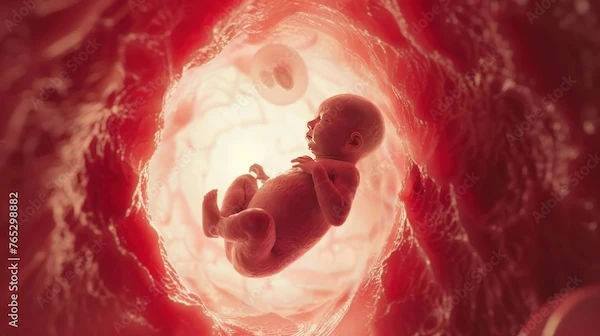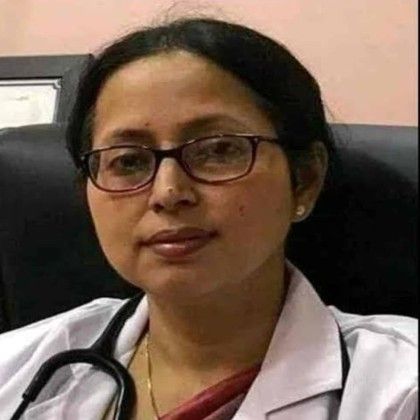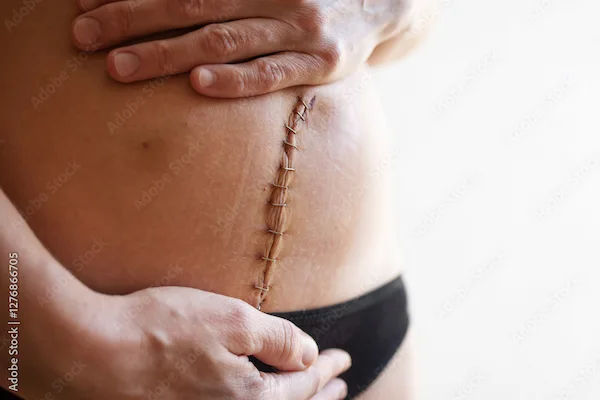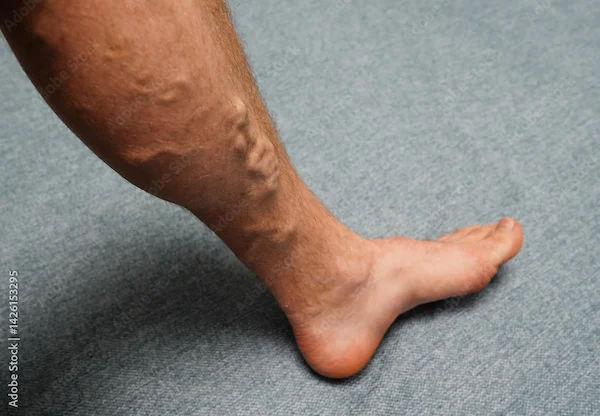Can Your Uterus Grow Back After Hysterectomy?
Wondering if the uterus can grow back after a hysterectomy? Learn the facts about uterine regrowth, rare exceptions, and post-surgery symptoms to watch for.

Written by Dr.Sonia Bhatt
Last updated on 8th Jul, 2025

Introduction
A hysterectomy is a surgical procedure to remove the uterus, and sometimes other reproductive organs like the cervix, ovaries, or fallopian tubes. It is often performed to treat conditions such as fibroids, endometriosis, uterine prolapse, or cancer. One common question many women have after this surgery is: Can the uterus grow back?
The short answer is no, the uterus cannot grow back after a complete hysterectomy. However, there are rare exceptions and important details to understand. Let’s explore this topic in a simple, compassionate way.
Understanding Hysterectomy
A hysterectomy involves the removal of the uterus, and depending on the type, other reproductive organs may also be removed:
Total Hysterectomy – Removal of the uterus and cervix.
Supracervical (Partial) Hysterectomy – Only the upper part of the uterus is removed, leaving the cervix intact.
Radical Hysterectomy – Removal of the uterus, cervix, upper vagina, and surrounding tissues, often for cancer treatment.
Oophorectomy – Removal of one or both ovaries, may be done along with a hysterectomy.
Once the uterus is fully removed, it does not regenerate. However, in extremely rare cases, small remnants of uterine tissue may remain if the surgery was incomplete, leading to a condition called "post-hysterectomy uterine remnant."
Consult Top Specialists for Personalised Health Advice
Can Uterine Tissue Regrow?
While the uterus itself does not grow back, there are a few rare scenarios where symptoms may mimic a regrowth:
1. Endometriosis Recurrence – If endometriosis was the reason for the hysterectomy, endometrial-like tissue can still grow outside the uterus, causing pain or bleeding.
2. Cervical Stump Issues – In a partial hysterectomy, the cervix remains, and in rare cases, abnormal tissue growth or cysts may develop.
3. Uterine Remnant Syndrome – If a tiny piece of uterine tissue is left behind, it may cause pain or bleeding, though this is very uncommon.
Symptoms to Watch For
If you’ve had a hysterectomy but experience the following, consult your doctor:
Pelvic pain
Unexpected vaginal bleeding
Pressure or discomfort in the pelvic area
Pain during intercourse
These symptoms do not mean your uterus has grown back, but they could indicate other issues like scar tissue, ovarian cysts, or residual endometrial tissue.
Managing Life After Hysterectomy
Since the uterus does not regenerate, you won’t have menstrual periods or be able to conceive after a full hysterectomy. However, hormonal changes (if ovaries are removed) may cause menopause symptoms. Here are some ways to stay healthy post-surgery:
1. Hormone Management
If your ovaries were removed, you may experience early menopause. Hormone replacement therapy (HRT) can help manage symptoms like hot flashes and mood swings.
2. Pelvic Floor Health
Strengthen pelvic muscles with Kegel exercises to prevent bladder issues.
Avoid heavy lifting initially to prevent strain.
3. Healthy Lifestyle
Eat a balanced diet rich in calcium and vitamin D to support bone health.
Stay active with gentle exercises like walking or yoga.
4. Emotional Well-being
Some women feel emotional after a hysterectomy. Talking to a counsellor or joining a support group can help.
When to See a Doctor?
If you experience unusual symptoms after a hysterectomy, such as persistent pain or bleeding, consult your doctor. It’s always better to get checked to rule out complications.
If you have concerns about post-hysterectomy health, you can easily book a consultation with a gynaecologist through Apollo 24|7. Our experts can guide you on recovery, hormone management, and any unusual symptoms.
Final Thoughts
A hysterectomy is a major surgery, and while the uterus does not grow back, staying informed about your body’s changes is important. Most women recover well and lead healthy lives afterward. If you have any doubts or symptoms, don’t hesitate to reach out to a healthcare provider.
Consult Top Gynaecologists
Consult Top Specialists for Personalised Health Advice

Dr Swatika Kumari
Obstetrician and Gynaecologist
19 Years • MBBS, DGO, DNB Obstetrics & Gynaecology
Nashik
Apollo 24|7 Clinic - Maharashtra, Nashik

Dr. Alapati Jyotsna
Obstetrician and Gynaecologist
4 Years • MBBS MS Obstetrics and Gynaecology
Visakhapatnam
Apollo 24|7 Clinic - Andhra Pradesh, Visakhapatnam

Dr. Shailaja L
Obstetrician and Gynaecologist
16 Years • MBBS, MS
Bangalore
Apollo 24|7 Clinic - Karnataka, Bangalore

Dr. Pooja Sahu
Obstetrician and Gynaecologist
8 Years • MBBS, MS (Obstetrics & Gynaecology)
Jajpur
satyapriya sahoo, Jajpur

Dr. Chaitali Roy
Obstetrician and Gynaecologist
28 Years • MBBS , MS (Obstetrics & Gynaecology)
Kolkata
Roy's Clinic, Kolkata
Consult Top Gynaecologists

Dr Swatika Kumari
Obstetrician and Gynaecologist
19 Years • MBBS, DGO, DNB Obstetrics & Gynaecology
Nashik
Apollo 24|7 Clinic - Maharashtra, Nashik

Dr. Alapati Jyotsna
Obstetrician and Gynaecologist
4 Years • MBBS MS Obstetrics and Gynaecology
Visakhapatnam
Apollo 24|7 Clinic - Andhra Pradesh, Visakhapatnam

Dr. Shailaja L
Obstetrician and Gynaecologist
16 Years • MBBS, MS
Bangalore
Apollo 24|7 Clinic - Karnataka, Bangalore

Dr. Pooja Sahu
Obstetrician and Gynaecologist
8 Years • MBBS, MS (Obstetrics & Gynaecology)
Jajpur
satyapriya sahoo, Jajpur

Dr. Chaitali Roy
Obstetrician and Gynaecologist
28 Years • MBBS , MS (Obstetrics & Gynaecology)
Kolkata
Roy's Clinic, Kolkata


.webp)

